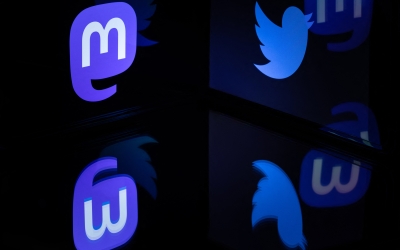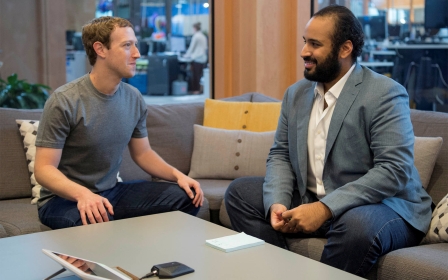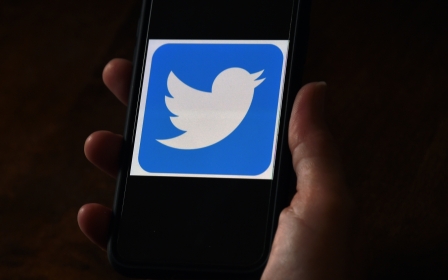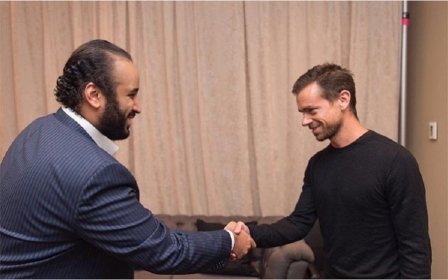Twitter: Fears over its collapse leave Arab activists scrambling
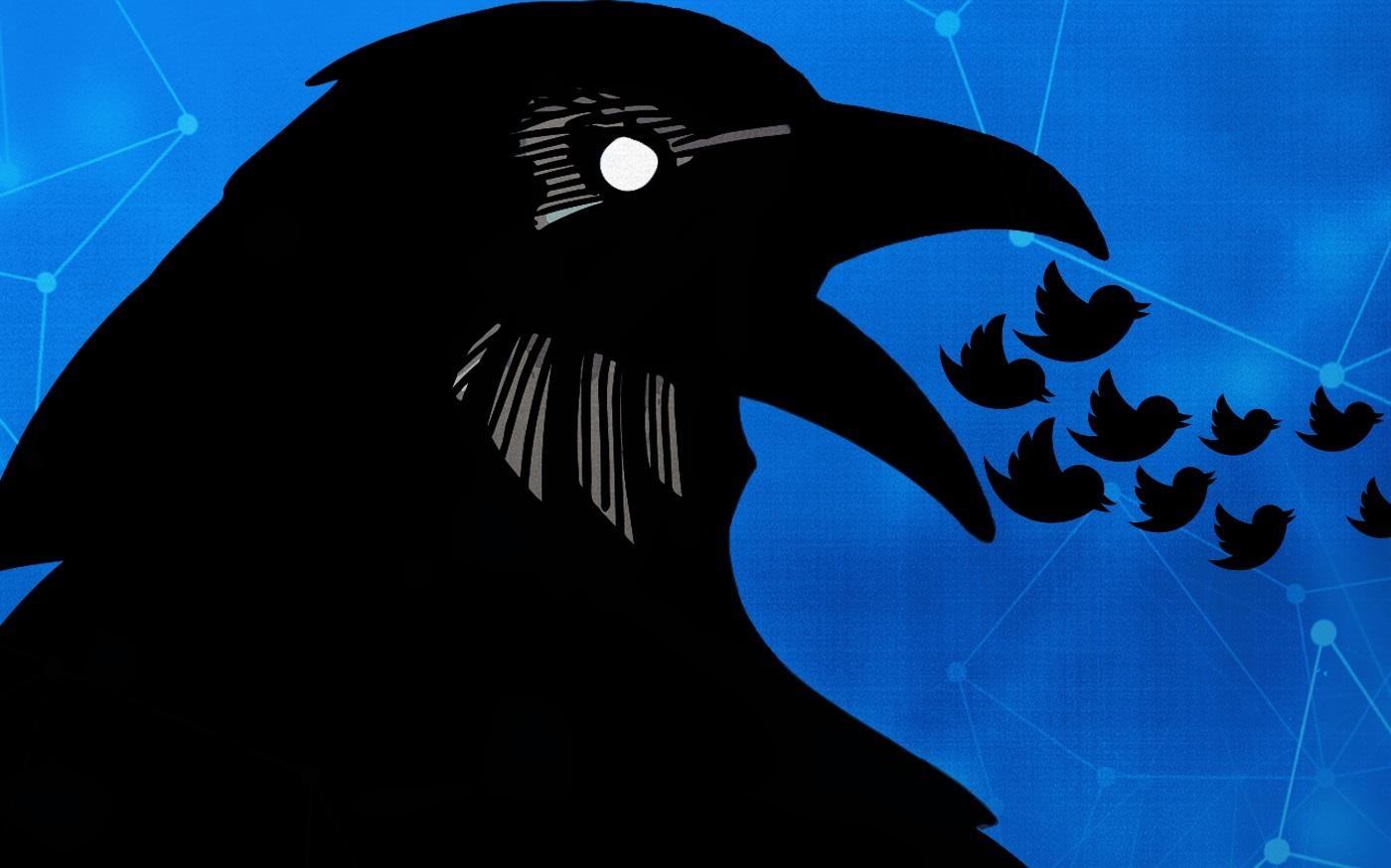
When Rahaf Mohammed attempted to flee abuse in Saudi Arabia in 2019 and ended up trapped in a Bangkok hotel at risk of imminent deportation, she turned to Twitter.
“I can’t do anything because they have my passport, and tomorrow they will force me to go back,” the 18-year-old pleaded. “Please help me. They will kill me.”
Halfway across the world, journalist Mona Eltahawy started translating her messages. Within hours, Mohammed was headline news. Within days, she had asylum in Canada.
As hundreds of Twitter employees resigned on Thursday and users shared "meet cute" stories, new Mastodon details and #RIPTwitter in a virtual (perhaps pre-emptive) wake, activists in the Middle East and their supporters were scrambling.
'In a minute, you get millions of people interacting with you. All of that work is at risk'
- Khalid Ibrahim, Gulf Centre for Human Rights
For over a decade, social media has been a go-to place for people in the region to speak out, even if anonymously.
New MEE newsletter: Jerusalem Dispatch
Sign up to get the latest insights and analysis on Israel-Palestine, alongside Turkey Unpacked and other MEE newsletters
And with a reported 237.8 million daily regional users, Twitter has been one of - if not the - main platforms, a public square for calls to protest, campaigns against wars and for political prisoners, pleas for aid and for help.
While Elon Musk’s takeover - and the backing of Saudi Prince Alwaleed bin Talal and his investment firm - sent tremors through the activist community, Thursday’s mass resignations felt to some like the final writing on the wall.
“We are so, so worried,” said Khalid Ibrahim, executive director of the Lebanon-based Gulf Centre for Human Rights, on Friday.
“We are just having discussions now about where we go. Could we just have a new application? What about the apps that are available? Are they going to be better?”
Mohamad Najem, executive director of Social Media Exchange (Smex), a Beirut-based nonprofit defending and advocating for digital rights in the Middle East and North Africa, said Twitter has been a critical space for expression in the region.
“There are no political parties. There are no syndicates. None of these things exist in the majority of the countries. Or if they exist, they are fully controlled by the state or state-affiliated agencies,” he told Middle East Eye.
Najem said he had anticipated changes with Musk’s takeover, but that it was happening much faster than expected and was “alarming”.
“There has been a lot of firing of different departments [including] the human rights department,” he said. “We don’t really have access to people we know now at Twitter.”
Ibrahim said his organisation, too, had relied on Twitter's human rights unit for help with issues such as hate speech, and it has now lost that contact.
Lives in the balance
Globally, rights groups and activists are now faced with having to rebuild years-old social connections and profiles from scratch, said Marc Owen Jones, associate professor at Hamad Bin Khalifa University in Qatar and author of Digital Authoritarianism in the Middle East.
“Activists who have built up followings and networks and connections, and the ability to master this platform that allows them to disseminate information and update events in real time… [its potential collapse] is going to be a huge thing,” he said.
Meanwhile, Ibrahim said Twitter's unique ability to attract attention quickly to urgent human rights cases means the current shifts could leave lives hanging in the balance.
He cited the case of Saudi Arabian human rights activist Israa al-Ghomgham, who was sentenced to death in 2018 on charges of participating in anti-government protests in the eastern governorate of Qatif in 2011.
Her execution was imminent, he said, and that’s when a Twitter campaign for Ghomgham brought immediate attention to her case.
“We saved her life. We forced the public prosecutor to appear in public and say that she was not facing the death penalty any more,” he said.
“Imagine, we just put out a tweet about human rights and we get over four million impressions. In a minute, you get millions of people interacting with you. All of that work is at risk."
Several activists told MEE that the revelation in 2018 about Saudi spies inside Twitter, who had shared user data with the Saudi government, had already raised red flags for them.
The data shared by the spies, including one who was convicted in August, is believed to have led to the arrest of anonymous Twitter users inside the kingdom.
But questions about the safety of Twitter and other social media platforms are something activists in the region have raised for years without migrating to other platforms.
The reason for this, according to Ghanem al-Masarir, a Saudi Arabian dissident and satirist based in London who has over 461,000 followers on Twitter, is that it's a platform that can't be easily replicated.
"If Twitter falls apart, this would be a crisis for all human rights activists around the world," Masarir said.
Saudi Arabia's penetration of Twitter with spies, he said, showed just how important the platform has become.
"I can't compare it to others. It is the best and, hopefully, it will continue to be the best. I hope Elon Musk will keep it running as it is."
This article is available in French on Middle East Eye French edition.
Middle East Eye delivers independent and unrivalled coverage and analysis of the Middle East, North Africa and beyond. To learn more about republishing this content and the associated fees, please fill out this form. More about MEE can be found here.


